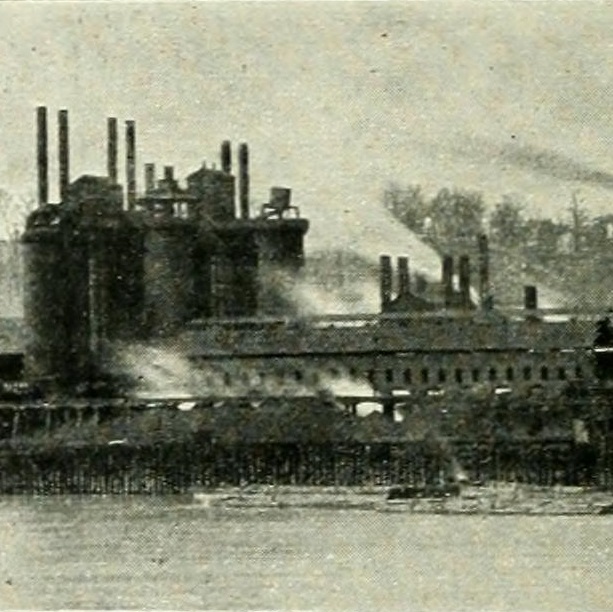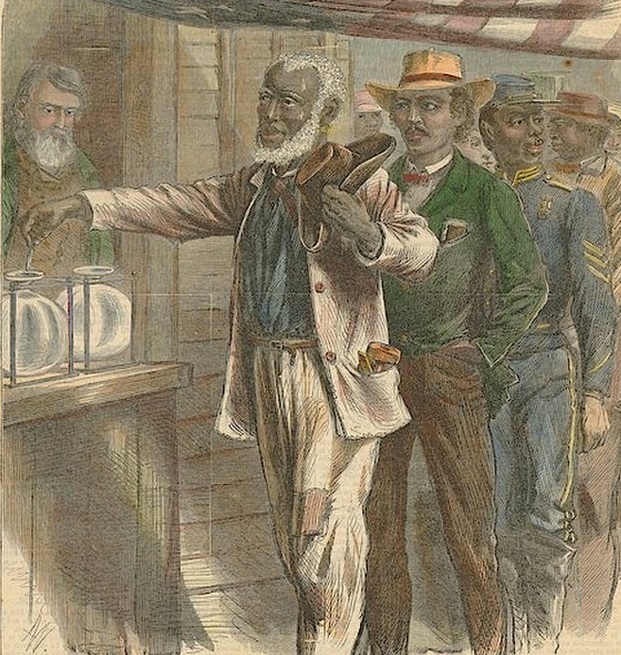
by Richard Subber | Apr 14, 2024 | American history, Book reviews, Books, Democracy, History, Human Nature, Politics, Power and inequality
the American crisis…
Book review:
Twilight of the Elites: America After Meritocracy
by Christopher Hayes
New York: Crown Publishers, 2012
292 pages
Twilight of the Elites is a frightening assessment of our culture, our government—our civitas.
“We are in the midst of a broad and devastating crisis of authority” (p. 13). You bet we are—and Hayes was writing before Trump was even a speck in your eye.
Americans embrace the American Dream, the Horatio Alger thing, that is, meritocracy: the acceptance and endorsement of the goodness of the idea that we should help ourselves to prosper and be successful, and that those among us with the greatest talent and strength and ambition should enjoy greater prosperity and greater success. It is an article of faith among most Americans that the cream will rise to the top, and deservedly so. Honest hard work will and should be rewarded. One of Hayes’ definitions of a benign meritocracy is “the aristocracy of talent.”
An obvious characteristic of meritocracy, of course, is inequality. “It is precisely our collective embrace of inequality that has produced a cohort of socially distant, blinkered, and self-dealing elites. It is those same elites who have been responsible for the cascade of institutional failure that has produced the crisis of authority through which we are now living…the consistent theme that unites [these failures] is elite malfeasance and elite corruption” (pp. 22-23). This acceptance of the meritocracy mythology “allows everyone to imagine the possibility of deliverance [from unfavorable circumstances], to readily conjure the image of a lavish and wildly successful future” (p. 47).
Hayes points out, however, that “a deep recognition of the slow death of the meritocratic dream underlies the decline of trust in public institutions and the crisis of authority in which we are now mired. Since people cannot bring themselves to disbelieve in the central premise of the American dream, they focus their ire and skepticism instead on the broken institutions it has formed” (p. 63). There is ample attention to the dreadful failure of the media, among other institutions, to sustain our communal understanding and respect for facts and the truth.
A suggestion about one possible agent of positive change identifies a “radicalized upper middle class” that bridges the liberal-conservative division, and forces accountability on our institutions of government, justice, education and finance. Hayes imagines “a crisis…necessary upheaval and social transformation,” and acknowledges the obvious: those with power never want to give it up.
Twilight reminds us that the ultra-wealthy, ultra-powerful 1% will hang on to what they’ve got—and keep trying to get more—until their reality changes.
Hayes tells many truths about the devastation that wracks American culture and most Americans, because the myth of the American dream is enabling a tiny elite to amass wealth and power, and use both to corrupt our society.
Americans must accept the frightening hardships
of a sincere commitment to change things.
Let’s get started.
* * * * * *
Book review. Copyright © Richard Carl Subber 2024 All rights reserved.
Book review: Tales from Shakespeare
summaries by Charles and Mary Lamb…
Above all: Poems of dawn and more with 73 free verse poems,
and the rest of my poetry books are for sale on Amazon (paperback and Kindle)
and free in Kindle Unlimited, search Amazon for “Richard Carl Subber”
* * * * * *

by Richard Subber | Jan 21, 2024 | American history, Book reviews, Books, Democracy, History, Politics, Power and inequality
Popular history: not exactly true…
Book review:
Origins of Modern America, 1860-1900
Allen Weinstein, ed.
Vol. 4 of Random House Readings in American History
New York: Random House, 1970
216 pages
Contains 10 essay-length segments addressing three themes: Civil War and Its
Aftermath, The New Society, and The Approach of Empire
The four decades that started with the American Civil War were a continuing tempest of change in every aspect of American life.
Origins of Modern America, 1860-1900 is a compact collection of 10 essays that will open your eyes to the significant currents and eddies in the great waves of transformation that marked the end of America’s first complete century. A lot of it wasn’t pretty.
Authors like Alfred D. Chandler Jr. and Stephan Thernstrom take a deep look at many iconic elements in the periods of American history that traditionally have been labeled as the Civil War, Reconstruction, and the Gilded Age. These essays were written in the middle of the 20th century, and these historians offer careful looks at many widely-held truisms that are not, in fact, wholly or even substantially true.
For example, Thernstrom examines “Urbanization, Migration, and Social Mobility in Late Nineteenth-Century America.” He gives evidence of several nuances and some inaccuracies in the concept of the development of a beleaguered, largely immigrant working class as industrialization burgeoned in the United States.
A large component of the working class were young American boys and girls who moved east to get off their parents’ failing farms. The political empowerment of the working class was muted and delayed in America (in contrast to the more volatile emergence of socialist activism in Europe) because so many of the blue collar workers were persistently transient—they didn’t stay in one job or place long enough to develop coherent political consciousness and clout.
Thernstrom starkly notes that “Lowell [a factory town] was terrible,” but for many European immigrants and Kansas farm boys the factory job and the tenement life were an improvement in their prospects for a tolerable life.
Organizing for worker’s rights was a tough proposition, and the wealthy factory owners and industry barons used their dominant power to resist it:
“In 1875, the Superintendent of one of Andrew Carnegie’s steel mills summed up his experience this way: ‘We must steer clear as far as we can of Englishmen, who are great sticklers for high wages, small production and strikes. My experience has shown that Germans and Irish, Swedes and what I denominate “Buckwheats”—young American country boys, judiciously mixed, make the most honest and tractable force you can find.’ ” (p. 149)
Indeed, there are many varieties of the American dream, all depending on your point of view.
Origins of Modern America offers good learning in compact, complementary, and compelling essays.
It will almost certainly change your mind about some key elements of American history
that you’ve always known to be true…
* * * * * *
Book review. Copyright © Richard Carl Subber 2024 All rights reserved.
Book review: The Jungle Grows Back:
America and Our Imperiled World
you need to read Robert Kagan’s book
My first name was rain: A dreamery of poems with 53 free verse and haiku poems,
and the rest of my poetry books are for sale on Amazon (paperback and Kindle)
and free in Kindle Unlimited, search Amazon for “Richard Carl Subber”
* * * * * *

by Richard Subber | Aug 8, 2023 | American history, Book reviews, Books, Democracy, History, Politics, Power and inequality
we need love, and we need trust…
Book review:
The Crisis of Democratic Capitalism
by Martin Wolf
New York: Penguin, 2023
474 pages
Wolf examines the problem in plain language: the imperatives and the expectations of democratic government both complement and conflict with the pursuit of personal and corporate success in a capitalist world.
His arguments and considerations are a lot more nuanced than that. You can learn to think in new ways about the despairing failures that put our society at risk.
The Crisis of Democratic Capitalism emphasizes one key point: in both the democratic and capitalist frames of reference, we need to be able to trust our leaders and the folks whose personal interests are at variance with those of the rest of the members of our society.
Aye, there’s the rub.
* * * * * *
Book review. Copyright © Richard Carl Subber 2023 All rights reserved.
Book review: An Empire Divided
King George and his ministers
wanted the Caribbean sugar islands
more than they wanted the 13 colonies…
by Andrew Jackson O’Shaughnessy
–
Seeing far: Selected poems with 47 free verse and haiku poems,
and the rest of my poetry books are for sale on Amazon (paperback and Kindle)
and free in Kindle Unlimited, search Amazon for “Richard Carl Subber”
* * * * * *

by Richard Subber | Dec 19, 2022 | American history, Book reviews, Books, Democracy, History, Politics, Power and inequality
violence shut down the “Reconstruction”
Book review:
Splendid Failure:
Postwar Reconstruction in the American South
by Michael W. Fitzgerald (b1956)
Chicago: Ivan R. Dee, 2007
234 pages
Splendid Failure offers a shockingly realistic account of the so-called “Reconstruction” period after the Civil War. There was a lot more violence, much earlier in the time frame, than you probably know about.
The violence throughout the South was not successfully resisted by Northern forces after the war, and after the presidential election dispute of 1876, the Northern watchdogs withdrew their concern. Commercial and political interests asserted their primacy in the North.
Fitzgerald observes: “At the national level the Republicans were the party of economic growth” (p. 100).
The white elites who held the economic and political power in the South before the war basically regained their economic and political power after the brief period of nominally reformative so-called “Reconstruction.”
As we now know, the war and the so-called “Emancipation Proclamation” weren’t the end of the story.
* * * * * *
Book review. Copyright © Richard Carl Subber 2022 All rights reserved.
Starving with a tiger…
Pogo says you better watch out…
–
In other words: Poems for your eyes and ears with 64 free verse and haiku poems,
and the rest of my poetry books are for sale on Amazon (paperback and Kindle)
and free in Kindle Unlimited, search Amazon for “Richard Carl Subber”
* * * * * *

by Richard Subber | Nov 25, 2022 | American history, Book reviews, Books, Democracy, History, Politics, Power and inequality
the many meanings of “shareholder value”…
Book review:
The Man Who Broke Capitalism:
How Jack Welch Gutted the Heartland
and Crushed the Soul of Corporate America—
and How to Undo His Legacy
by David Gelles
New York: Simon & Schuster, 2022
264 pages
Gelles has written a dreadfully important expose of the evolution of the disastrous idolatry of “maximizing shareholder value” and funneling more and more of America’s corporate wealth to the relatively small cadre of executives and directors and financiers who took advantage of it to line their own pockets and deny economic success to just about everyone else.
Of course, Gelles doesn’t say that Jack Welch was the only one who did it. For my taste, the title of the book is a distraction from the truth: America’s financial elite have misappropriated the industrial wealth of the country.
The Man Who Broke Capitalism concludes with a broadly detailed array of governmental policies that would remediate the disaster that Jack Welch and the Chicago school of economists and so many others created to be a substitute for the notion that a corporation is a creature of our society, and is best understood as a conduit for creating goods, creating wealth, and widely distributing both.
* * * * * *
Book review. Copyright © Richard Carl Subber 2022 All rights reserved.
Book review: Ethan Frome
it’s about not being satisfied with less…
by Edith Wharton
–
Seeing far: Selected poems with 47 free verse and haiku poems,
and the rest of my poetry books are for sale on Amazon (paperback and Kindle)
and free in Kindle Unlimited, search Amazon for “Richard Carl Subber”
* * * * * *

by Richard Subber | Nov 4, 2022 | Book reviews, Books, Democracy, Politics, Power and inequality
We’re all Americans…
Book review:
Brown is the New White:
How the Demographic Revolution
has Created a New American Majority
by Steve Phillips
New York: The New Press, 2016
Phillips offers blockbuster data that spells out the demographic reality: a progressive, multiracial majority exists in the United States. It’s up to the Democratic Party to take the lead and serve this majority in ways that will benefit all Americans.
Phillips tells it like it is: Democrats lose at the polls when progressive whites and progressive voters of color don’t think it’s worth their time to vote. It happens too often.
Brown is the New White says the long game is to forget about the mythical “white swing vote” and pay attention to the increasing segment of the electorate that is not white. We’re all Americans here.
* * * * * *
Book review. Copyright © Richard Carl Subber 2022 All rights reserved.
social media make America stupid…
Jonathan Haidt explains in The Atlantic
–
As with another eye: Poems of exactitude with 55 free verse and haiku poems,
and the rest of my poetry books are for sale on Amazon (paperback and Kindle)
and free in Kindle Unlimited, search Amazon for “Richard Carl Subber”
* * * * * *




